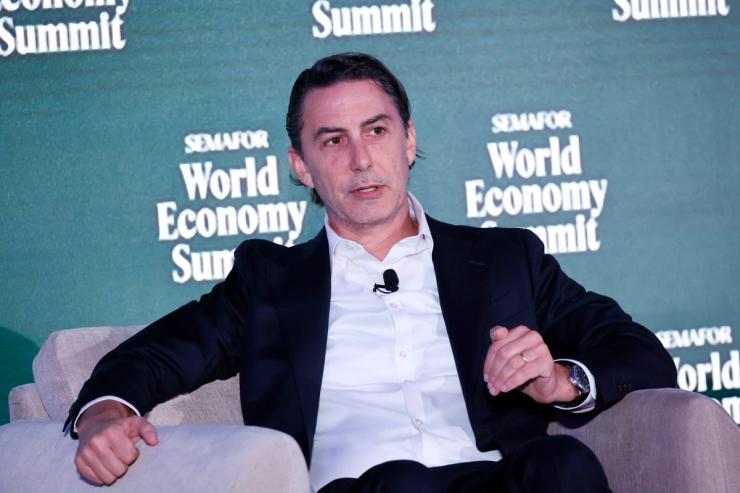The News
The Biden administration’s former top energy adviser, Amos Hochstein, warned on Thursday that AI’s energy demand is at risk of outstripping supply.
“We have a huge gap on energy and AI,” Hochstein, who is a managing partner at TWG Global, said at Semafor’s World Economy Summit in Washington, DC.
“If things don’t happen soon, it will become a crisis. I’m not an alarmist in general, but I don’t think we are going in the right direction,” Hochstein said.
WG Global is heavily investing in the AI industry. Earlier this year, it announced a partnership with Palantir and xAI to develop AI for financial services and insurance sectors.
Tech companies are jockeying for energy to power data centers to run their AI models. As these companies look to expand their data center footprint, their capacity requirements are raising questions over whether existing power generation will be enough. And some residents in communities where data centers are being built have claimed they’re raising their energy bills, with some fighting against new projects.
Opposition to new data centers has also become an issue in some local elections. Candidates from both parties in a Virginia county board of supervisors election are campaigning to ban new data center construction, Semafor reported this week.
An IEA report from April projected that electricity demand from data centers worldwide is set to more than double by 2030, to slightly above the electricity consumption of all of Japan today, with AI driving a majority of the increase. In the US, the IEA estimated that data center power consumption will account for almost half of the growth in electricity demand between now and 2030.
Know More
Hochstein emphasized that AI’s energy requirements could threaten growth.
American AI companies are working incredibly fast and are armed with unprecedented amounts of capital. At the same time, they are competing both with each other and China to build the best technologies, he said. Meanwhile, utility and power companies, and the officials overseeing such projects, operate much more slowly.
“The culture clash is significant,” Hochstein said.
AI companies “used to talk about [doing] a gigawatt cluster. Now, we’re talking about five-gigawatt clusters,” Hochstein said, adding that is only set to increase.
“We don’t have that power. We don’t have that supply chain of materials and turbines and masters and electricians.”
“AI companies are finally coming to the fact that, ‘OK, I’m really smart at technology and AI. I may not know energy,’” Hochstein said.



